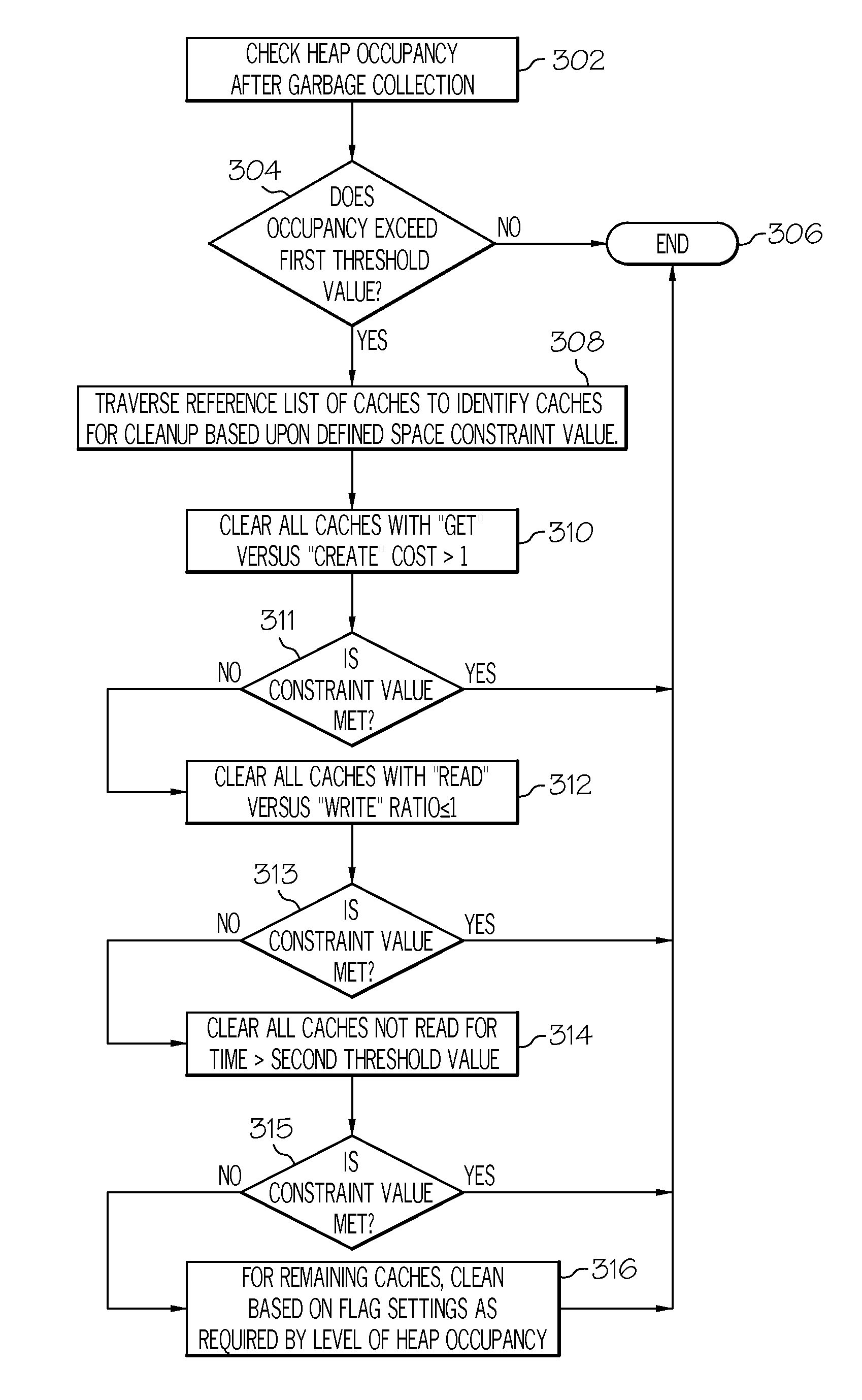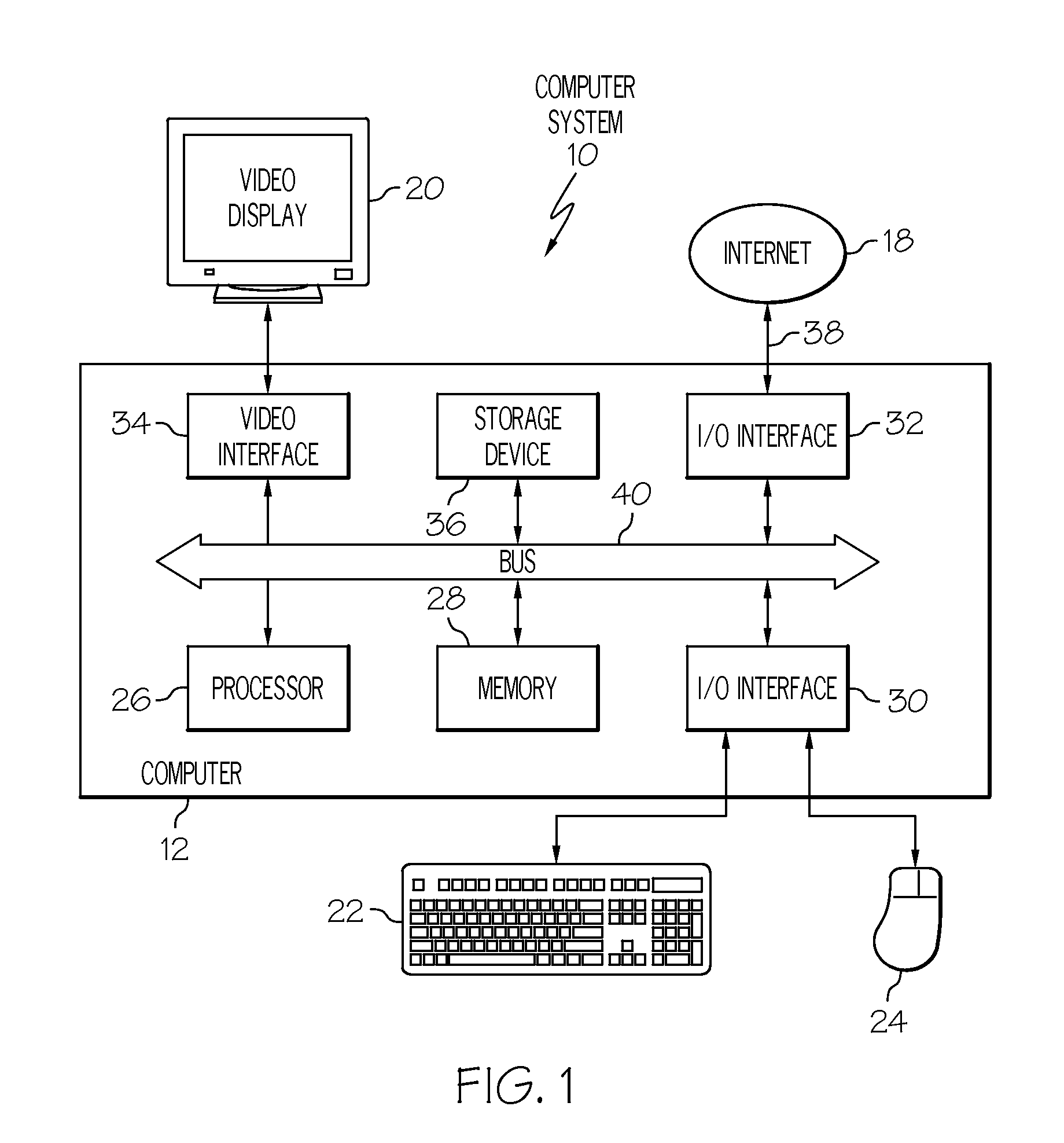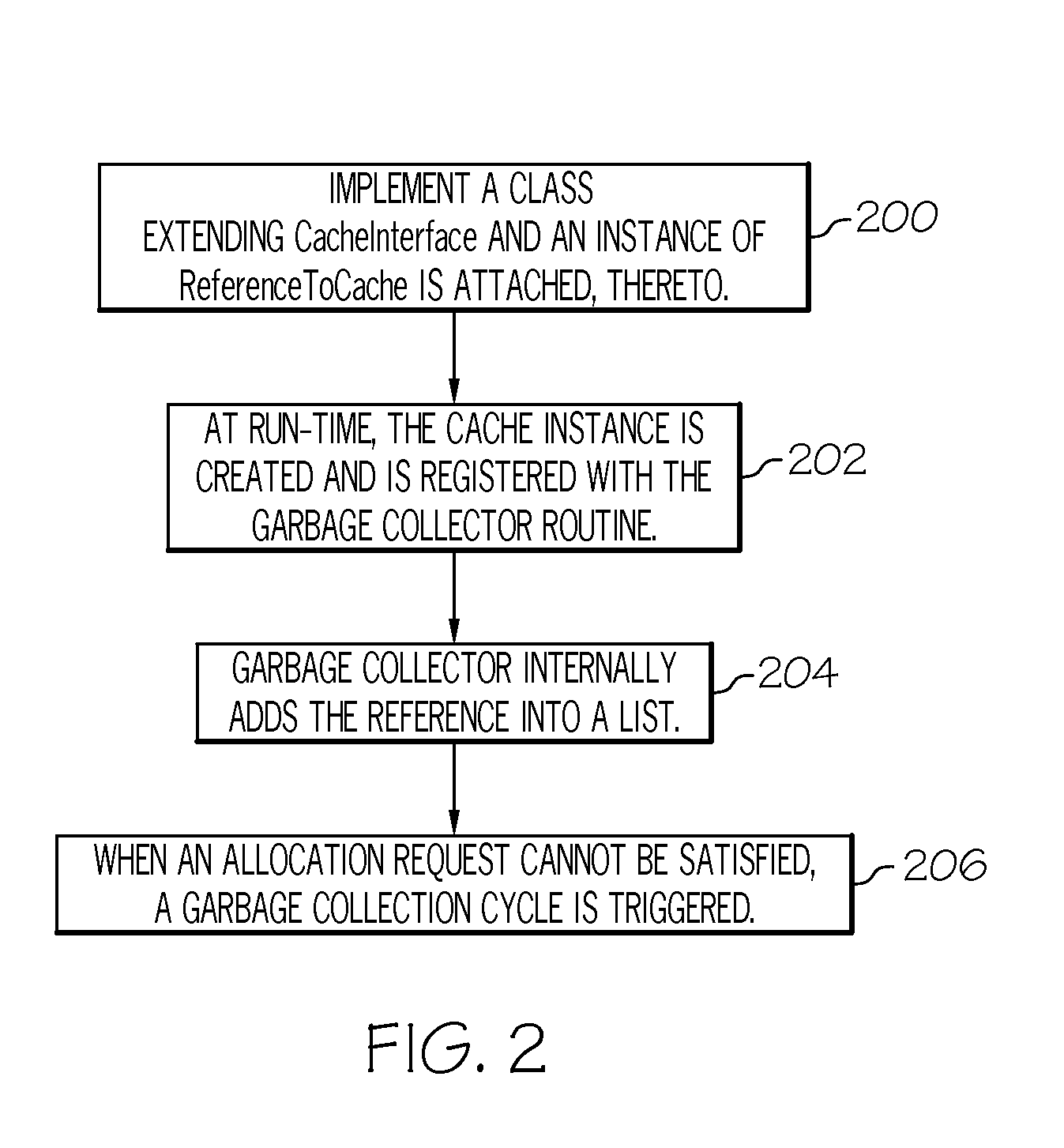Efficient memory management in software caches
- Summary
- Abstract
- Description
- Claims
- Application Information
AI Technical Summary
Benefits of technology
Problems solved by technology
Method used
Image
Examples
example implementation
[0042 of a cache.
[0043]The following pseudo code demonstrates a sample Socket connection cache:
public class ConnectionCache extends CacheInterface { HashMap map = newHashMap( ); public ConnectionCache( ) { super( ); }@Overrideprotected void cleanup(int spaceConstraint, long spaceRequirement) { int size = map.size( ); int entriesToRemove = 0 ; (14) switch (spaceConstraint) { case CacheInterface.SPACE_CONSRAINT_MILD : entriesToRemove = (int)(size*.05); / / clear 5% (15) break; case CacheInterface.SPACE_CONSRAINT_MEDIUM : entriesToRemove = (int)(size*.10); / / clear 10% (15) break; case CacheInterface.SPACE_CONSRAINT_SEVERE : entriesToRemove = (int)(size*.20); / / clear 20% (15) break; case CacheInterface.SPACE_CONSRAINT_CRITICAL : entriesToRemove = (int)(size*0.40); / / clear 40% (15) break; default: break; } / * * Use the ‘entriesToRemove’ variable as a guidance value * locate t...
PUM
 Login to View More
Login to View More Abstract
Description
Claims
Application Information
 Login to View More
Login to View More - R&D
- Intellectual Property
- Life Sciences
- Materials
- Tech Scout
- Unparalleled Data Quality
- Higher Quality Content
- 60% Fewer Hallucinations
Browse by: Latest US Patents, China's latest patents, Technical Efficacy Thesaurus, Application Domain, Technology Topic, Popular Technical Reports.
© 2025 PatSnap. All rights reserved.Legal|Privacy policy|Modern Slavery Act Transparency Statement|Sitemap|About US| Contact US: help@patsnap.com



